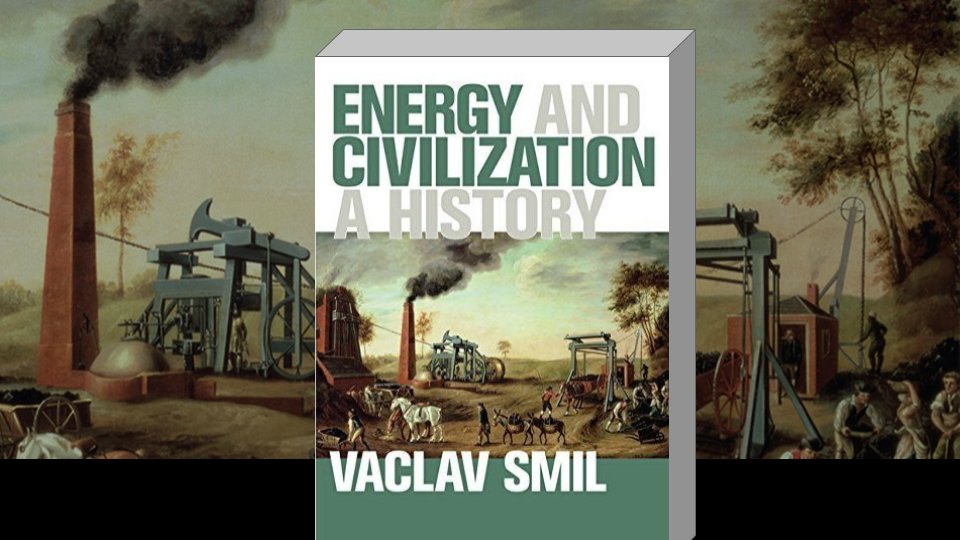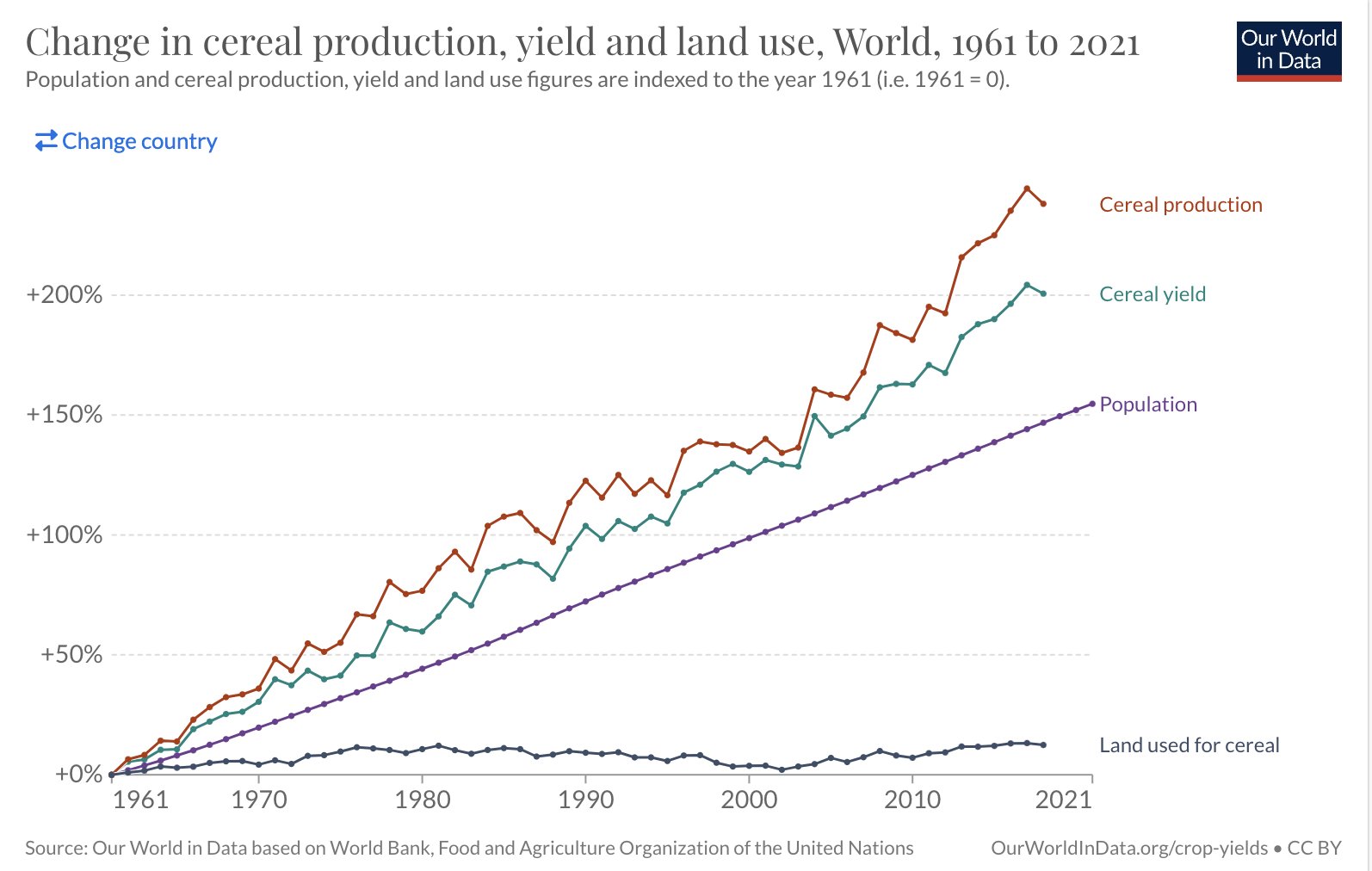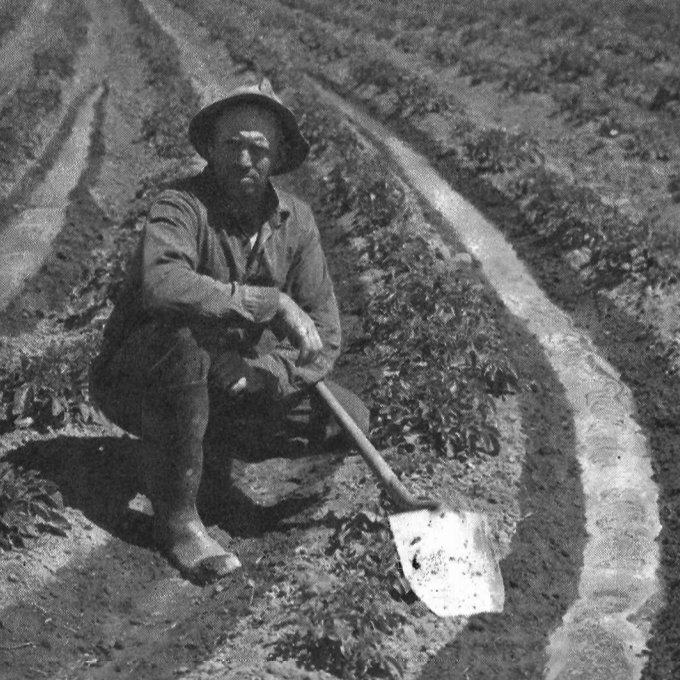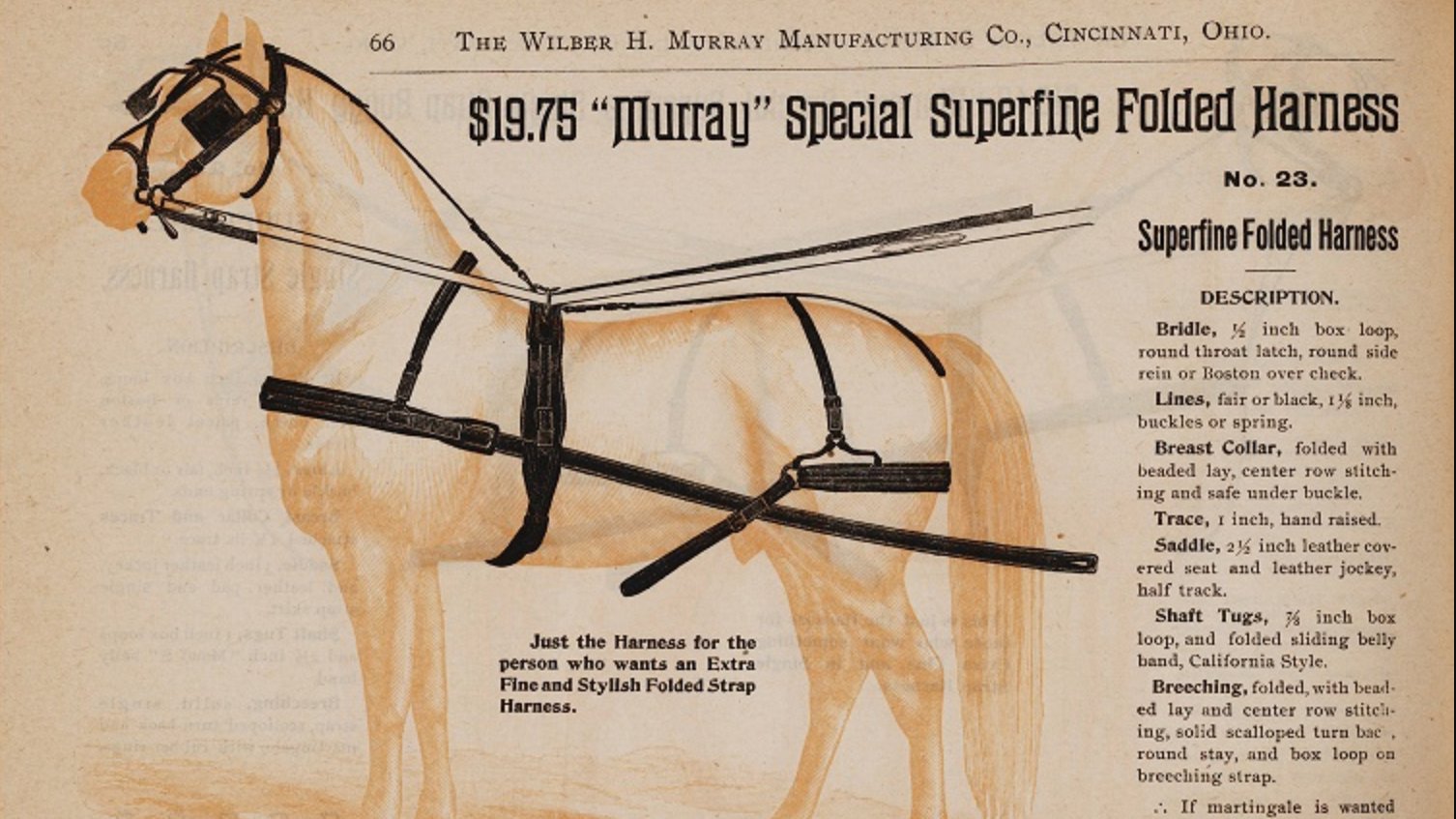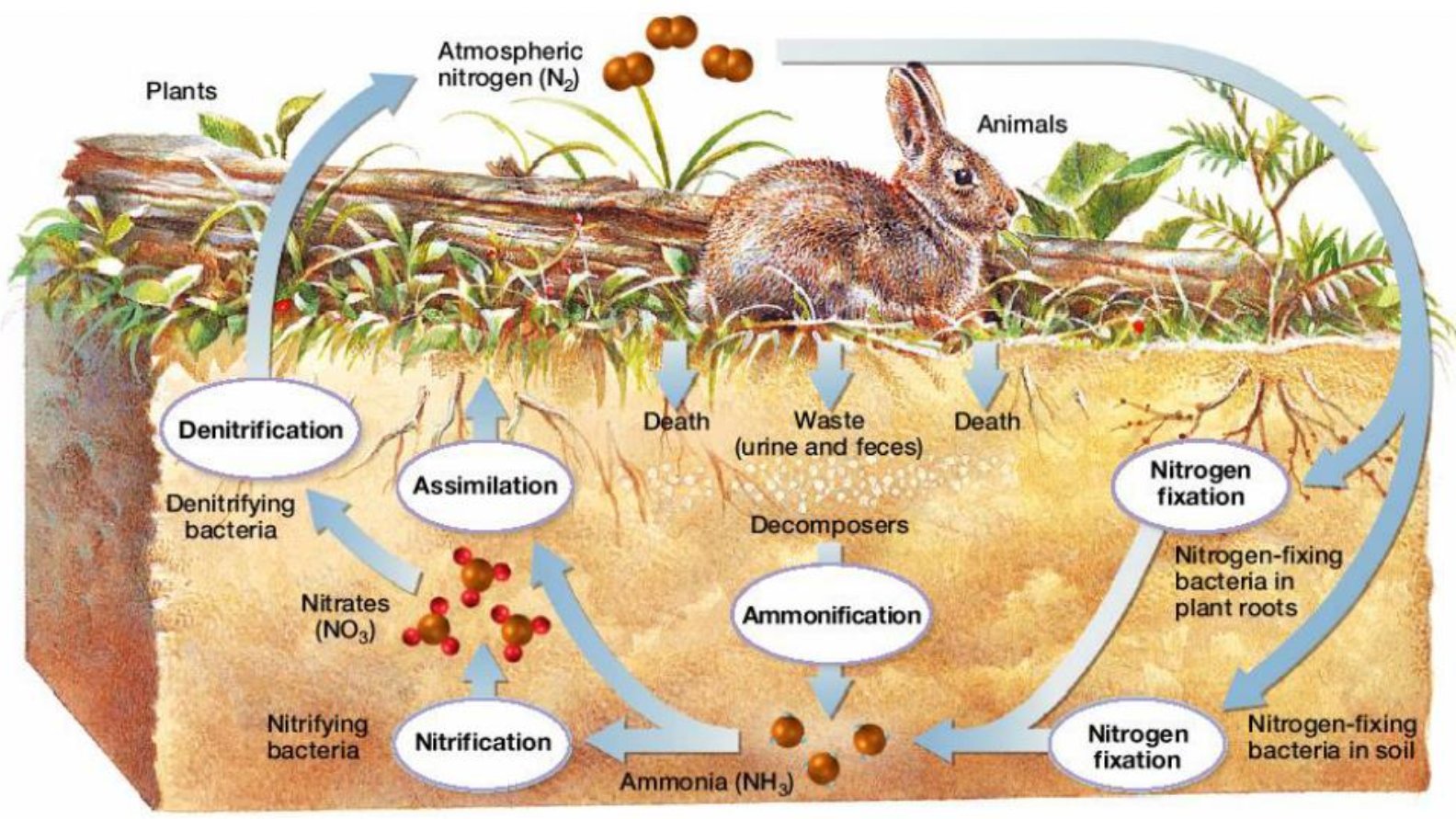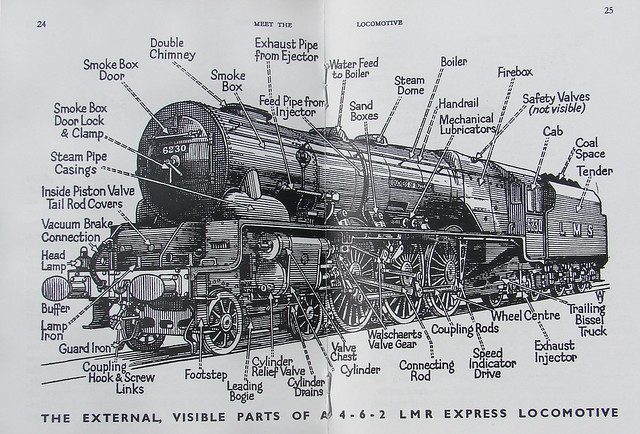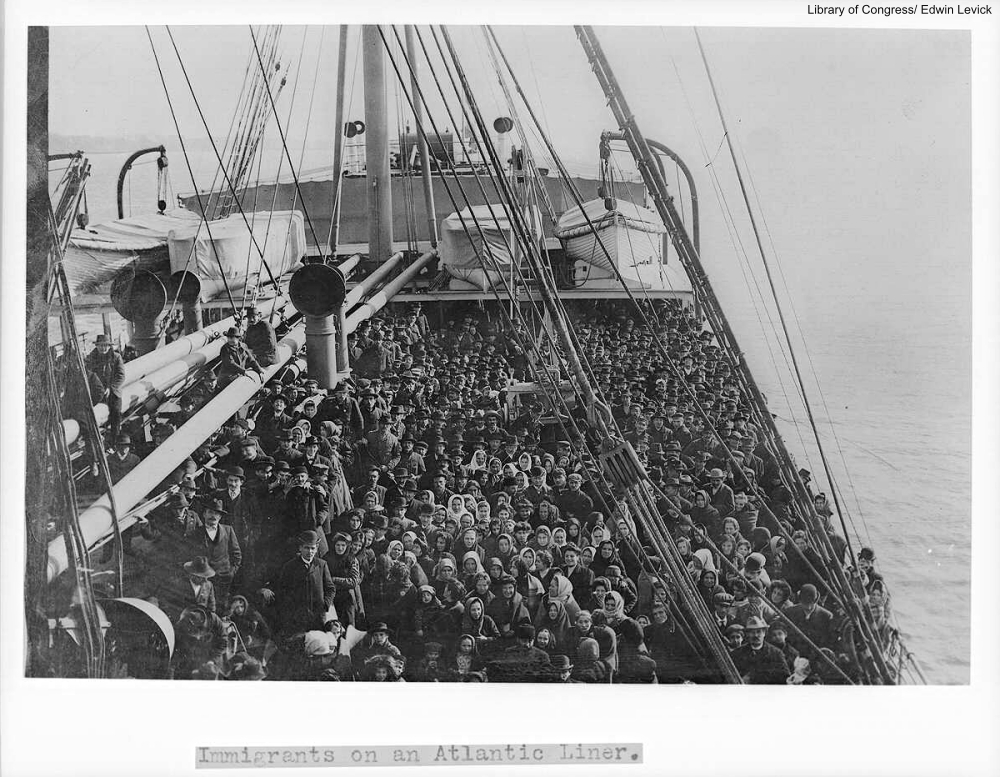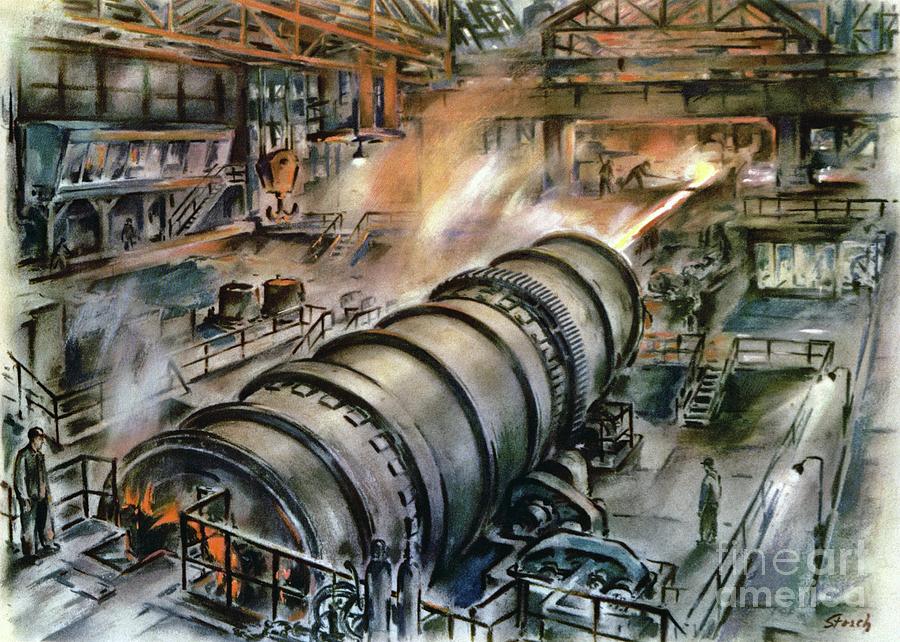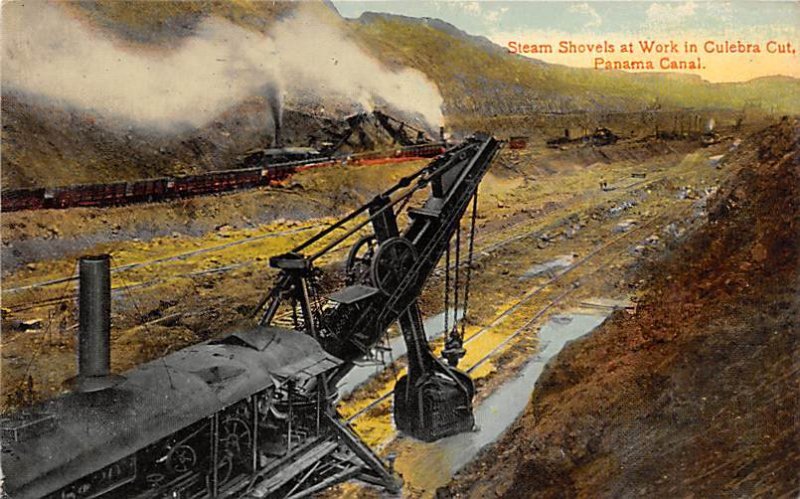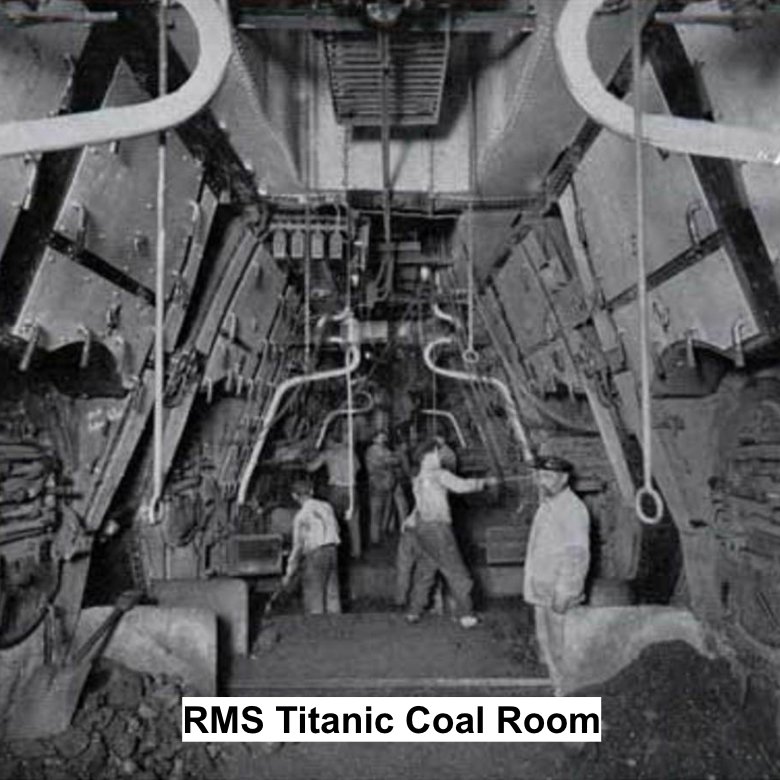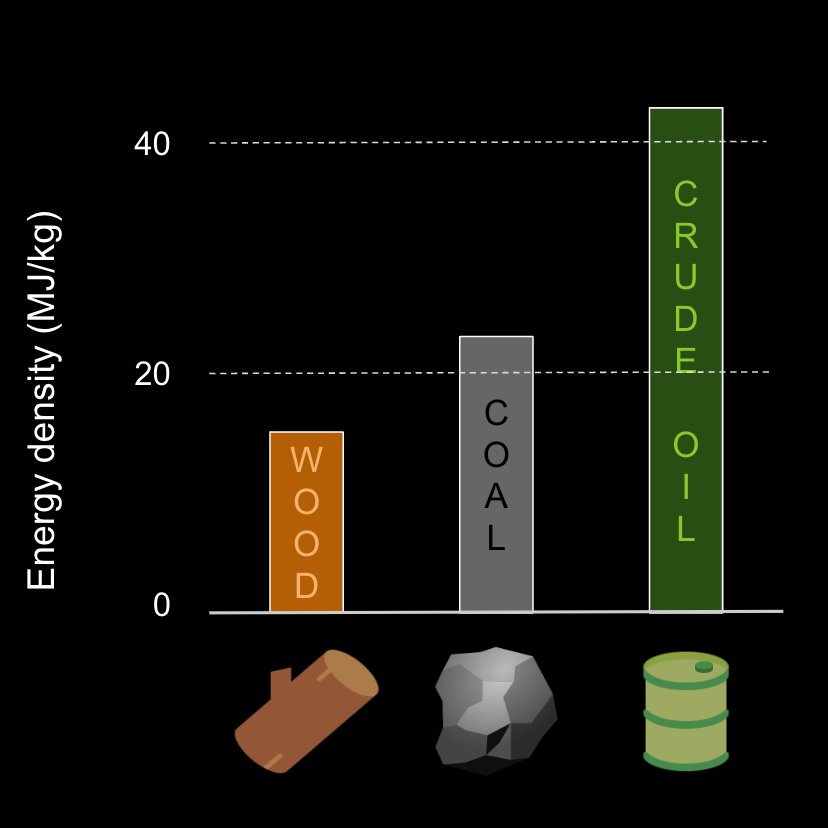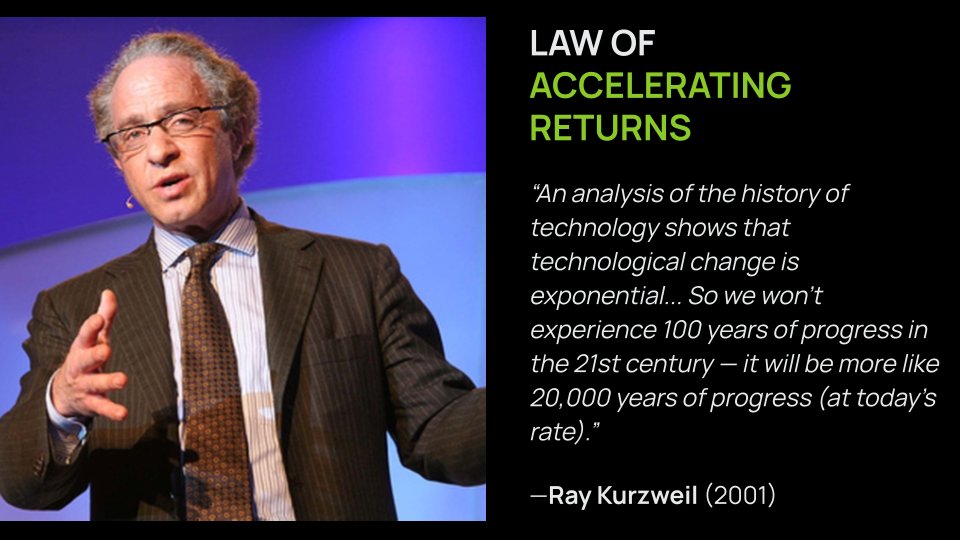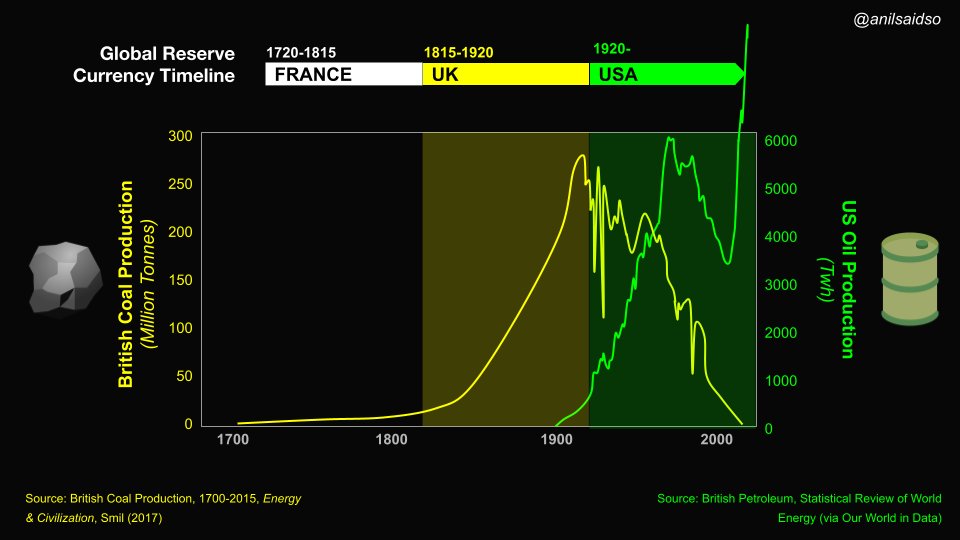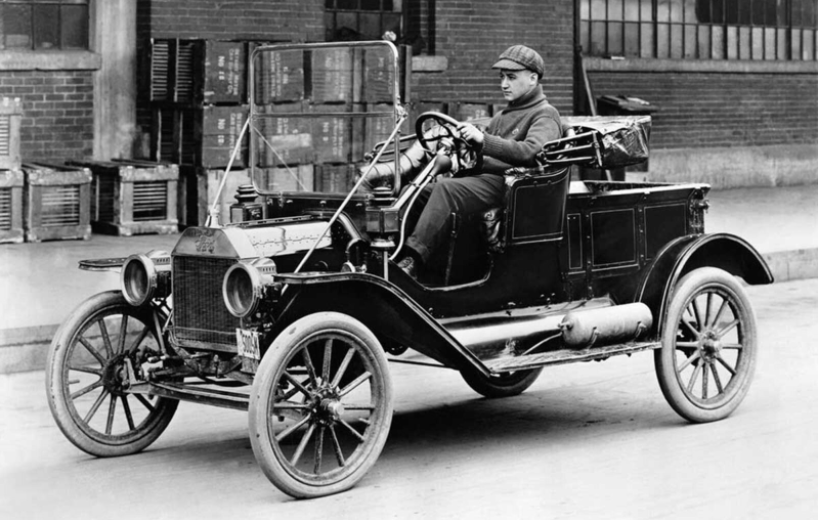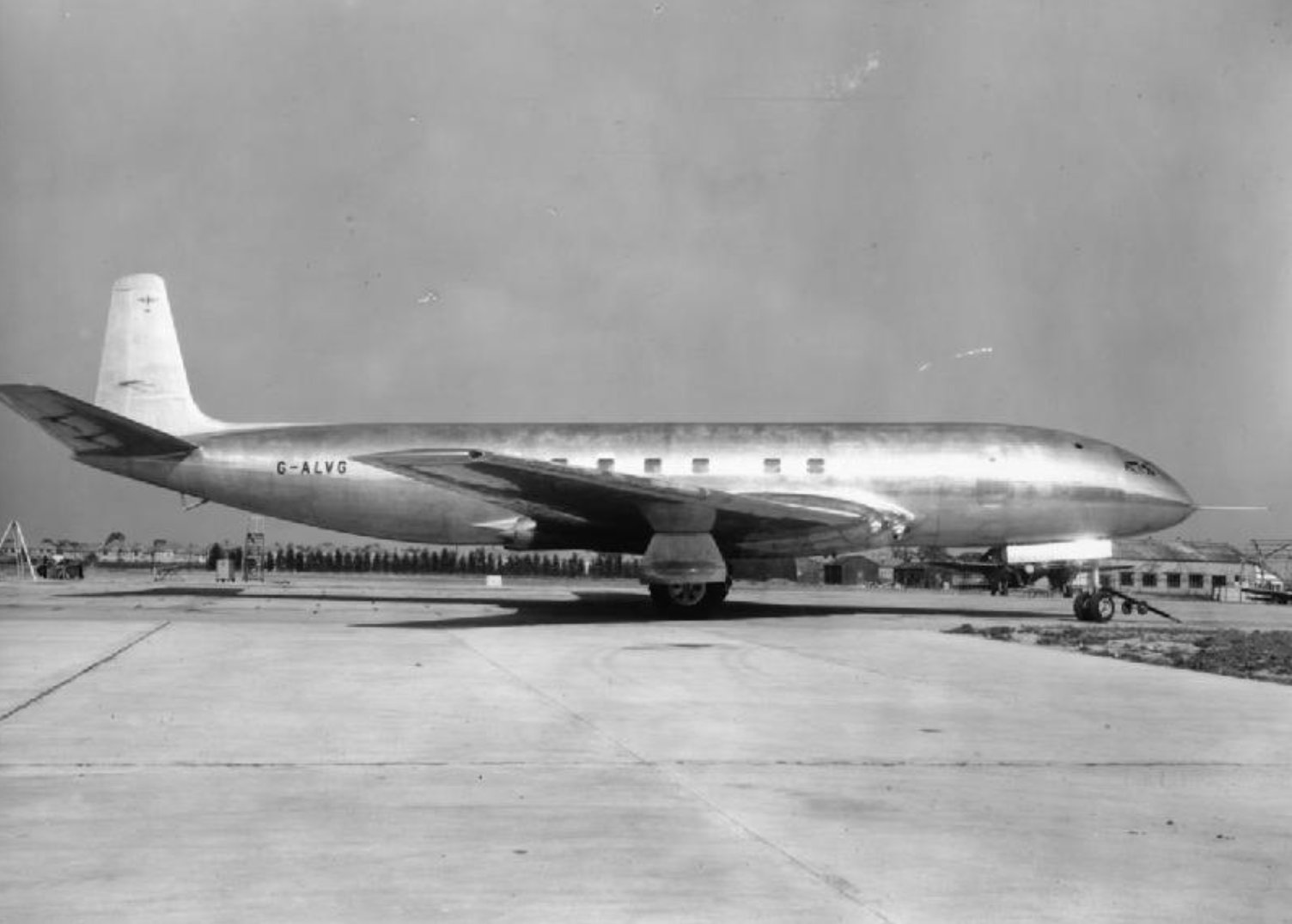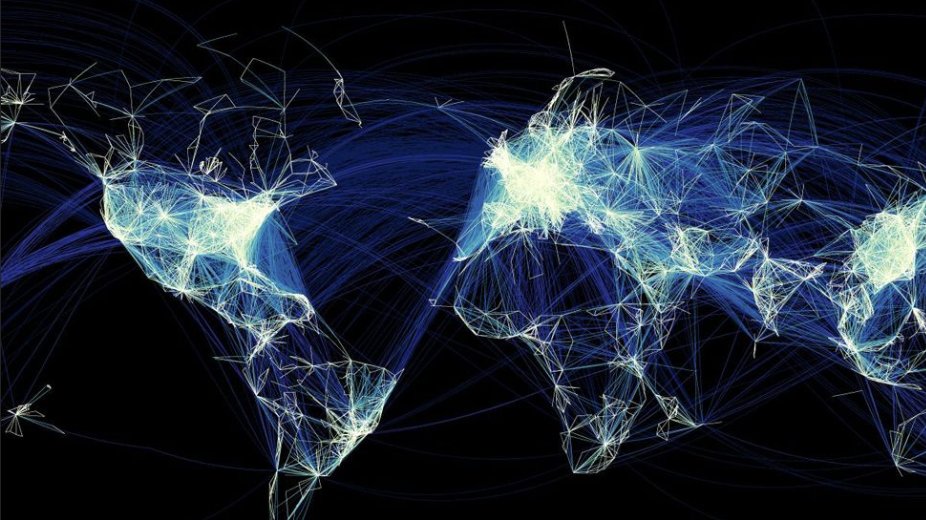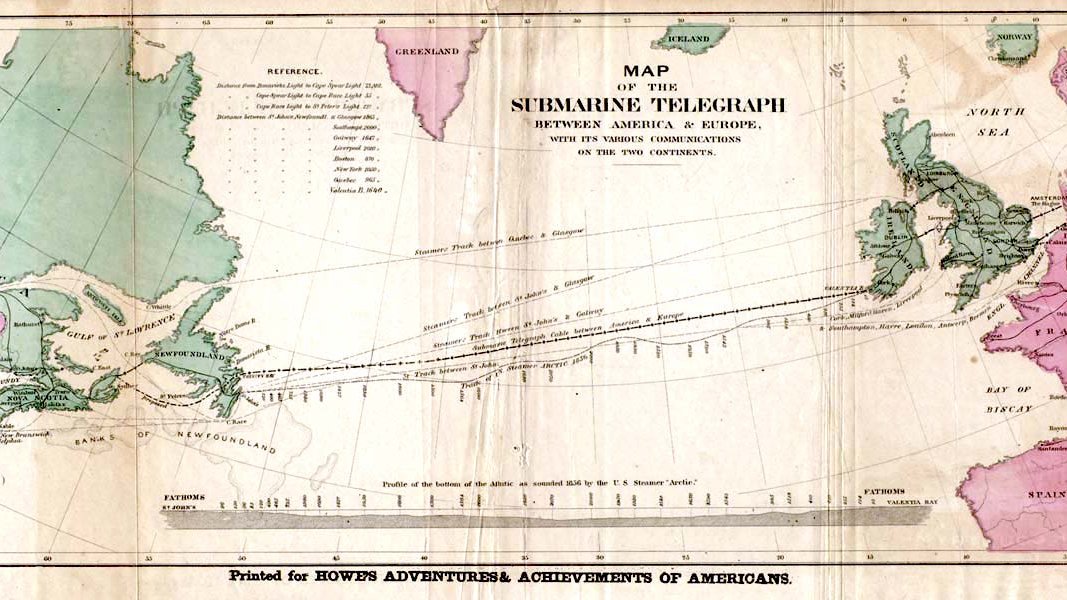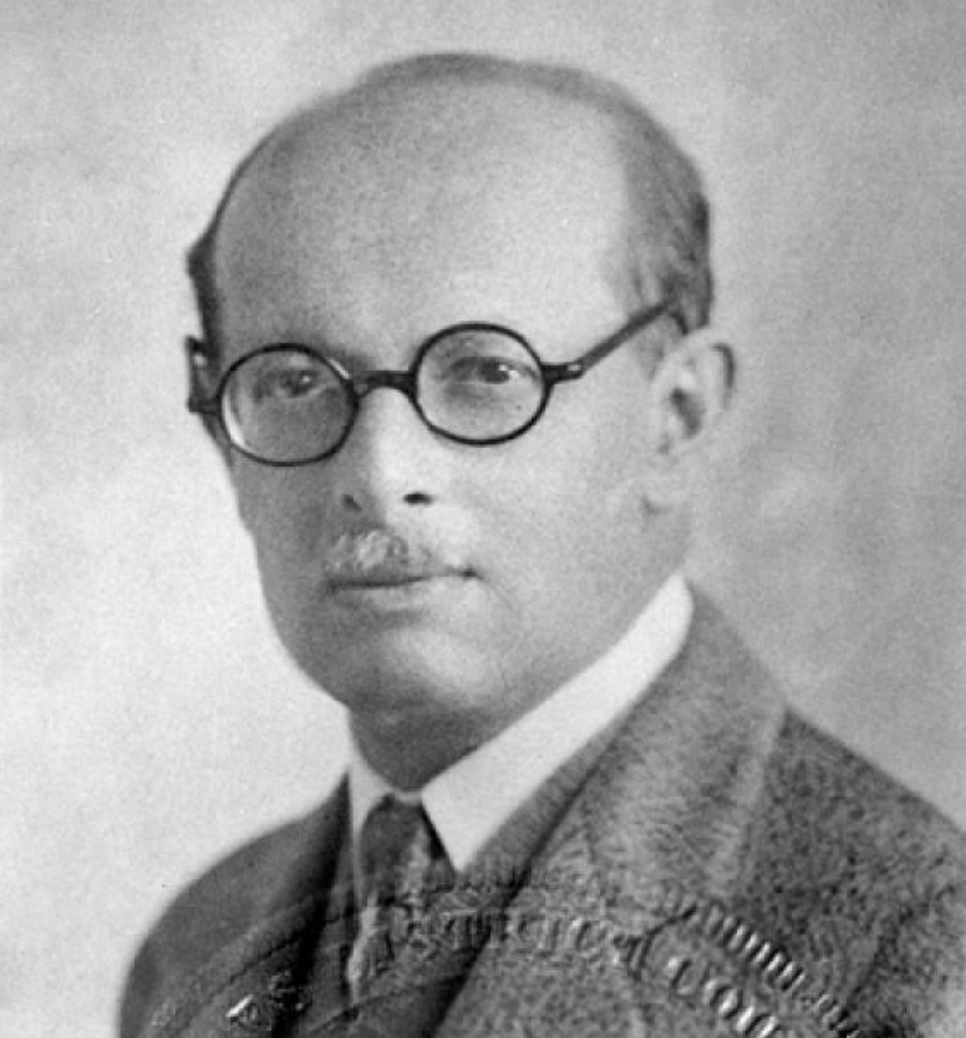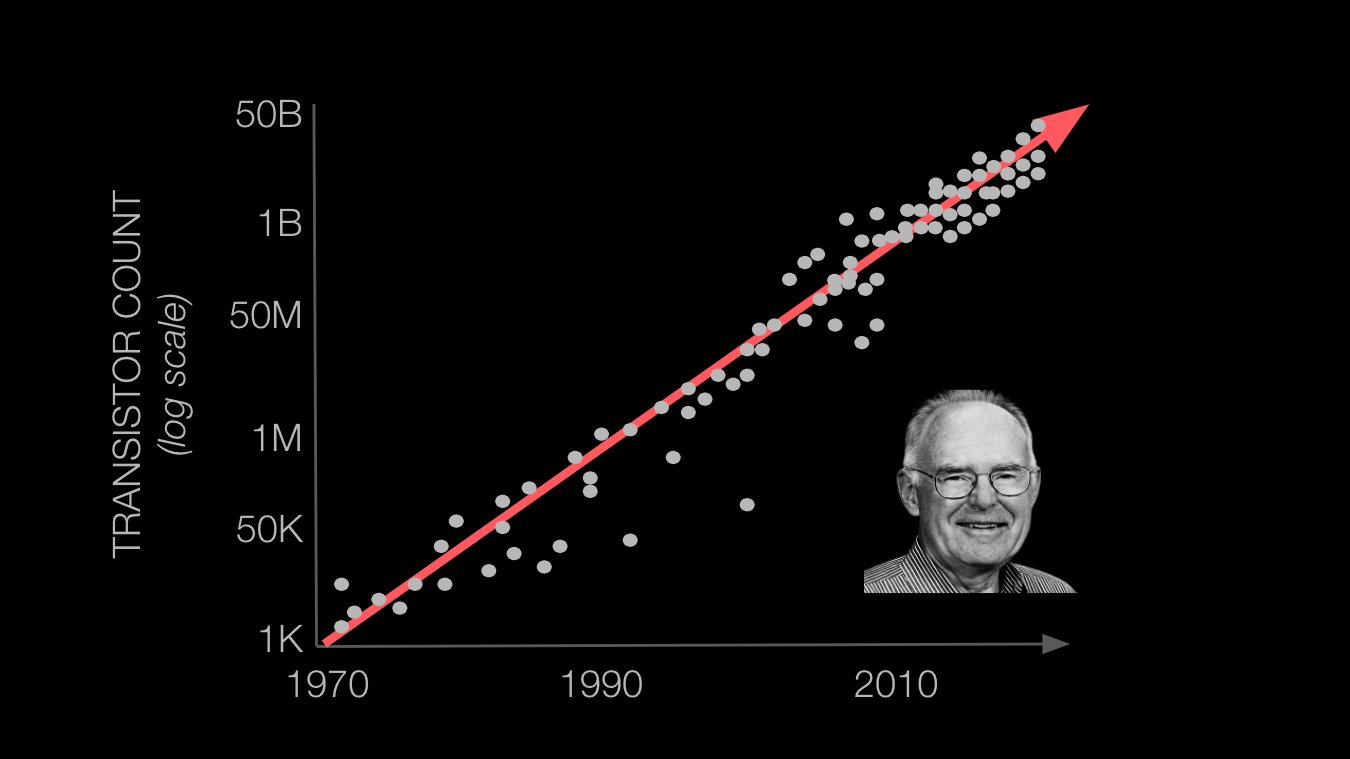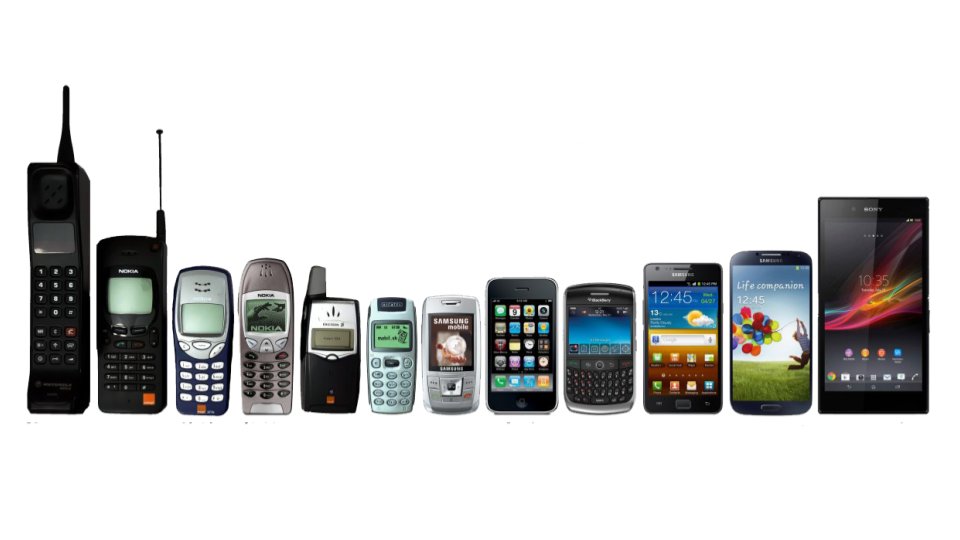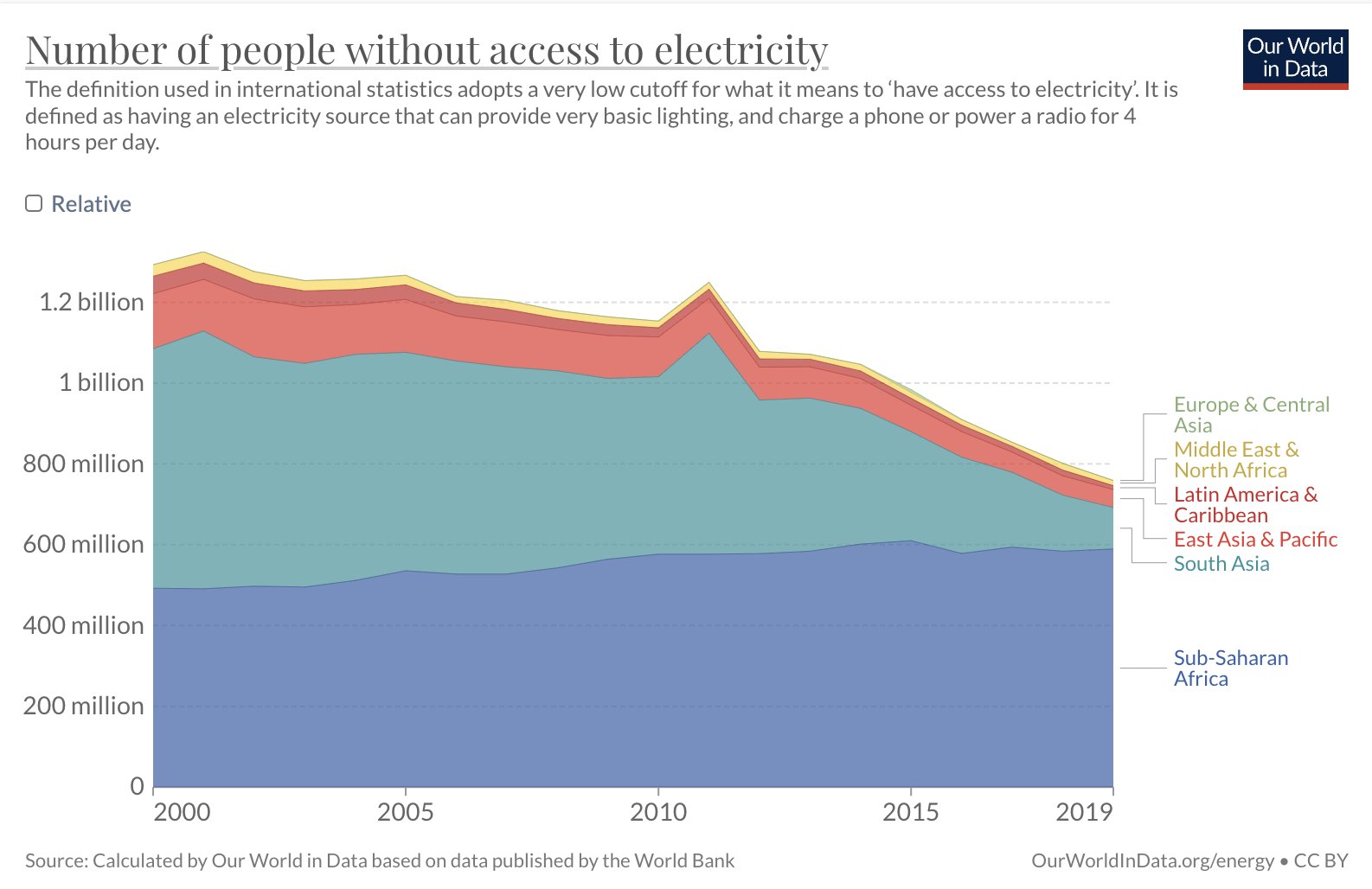Thread
'Energy and Civilization' explores the inextricable relationship between human flourishing and our ability to harness energy through the process of innovation.
A thread on the role of energy in agriculture, transportation, communication, and urbanization.
A thread on the role of energy in agriculture, transportation, communication, and urbanization.
"While the transition from foraging to farming cannot be explained solely by energetic imperatives, the evolution of agriculture can be seen as a continuing effort to raise land productivity in order to accommodate larger populations."
"all traditional agricultures shared the same energetic foundation. They were powered by photosynthetic conversion of solar radiation, producing food for people, feed for animals, recycled wastes for replenishing soil fertility, and fuels for smelting metals [for] simple tools"
"farming sustained higher pop. densities, but it also demanded higher energy expenditures..for critical supportive measures as the digging of wells, the building of irrigation canals, roads, and food storage structures, and the terracing of fields."
"higher yields [required] three essential advances."
1. partial replacement of human labor by animal labor
2. irrigation and fertilization
3. crop variety (multi-cropping or rotations) for resiliency
1. partial replacement of human labor by animal labor
2. irrigation and fertilization
3. crop variety (multi-cropping or rotations) for resiliency
"Horses are the most powerful draft animals."
[they] have better endurance (8-10hrs/day vs. cattle 4-6hrs/day) and live longer (15-20yrs vs. oxen 8-10yrs)
[they] have better endurance (8-10hrs/day vs. cattle 4-6hrs/day) and live longer (15-20yrs vs. oxen 8-10yrs)
"Continued cropping without fertilization would create nitrogen deficits.
The organic fertilizer with the highest content is 'guano', droppings of seabirds preserved along the Peruvian coast.
Imports to the U.S. began in 1824 and to England in 1840."
The organic fertilizer with the highest content is 'guano', droppings of seabirds preserved along the Peruvian coast.
Imports to the U.S. began in 1824 and to England in 1840."
"Modern farming is dominated by monocultures. They need fertilizers to replace the removed nutrients, as well as chemicals to control pests, which thrive on vast uniform plantings.
Long experience taught many ancient cultivators the perils of monocultures."
Long experience taught many ancient cultivators the perils of monocultures."
"The limits to population density in societies undergoing agricultural involution were reached by the ability to subsist on gradually diminishing per capita returns of human labor.
These gains became eventually limited by the maximum possibilities of nitrogen recycling."
These gains became eventually limited by the maximum possibilities of nitrogen recycling."
"Only the input of fossil energies—directly as fuels and electricity, and indirectly as in agricultural chemicals and machinery—could sustain both an expanding population and a higher per capita supply of food.
There would be no complex cultures without high pop. densities."
There would be no complex cultures without high pop. densities."
"The transition to fossil fuels has entailed two fundamental qualitative improvements:
1. introducing new prime movers—steam engines, turbines, and gas turbines..
2. using fossil fuels to produce electricity."
1. introducing new prime movers—steam engines, turbines, and gas turbines..
2. using fossil fuels to produce electricity."
"in terms of overall energy consumption, [England and Wales] saw roughly a 15-fold increase in 200 years, which made exponential economic growth possible, and the steam engine was undoubtedly a key mechanical driver of industrialization and urbanization."
"Gradually, larger and faster steamships displaced sail ships from the busiest passenger and cargo runs across the North Atlantic.
They transported most of the 60 million emigrants who left the continent for overseas destinations [primarily] North America."
They transported most of the 60 million emigrants who left the continent for overseas destinations [primarily] North America."
"Metal was needed in ever larger quantities by many new industrial markets: in the steel industry, in the new electrical industry, in oil and gas extraction, in shipping, in manufacturing, and in traditional textiles and food processing industries."
"Other mobile applications that made heavy tasks easier included steam cranes, pile drivers, and excavators. The Panama Canal could not have been completed so fast without the deployment of about 100 large steam shovels."
"But seam engines became victims of their own success [and] they began to encounter their inherent limitations.
Even after more than a century of improvements the most commonly used steam engines..wasted 92% of coal fed into its boiler.
Even after more than a century of improvements the most commonly used steam engines..wasted 92% of coal fed into its boiler.
"The ascendence of internal combustion engines was made possible by the availability of inexpensive liquid fuels refined from crude oil: they had higher energy density than coal."
"Previously, new energy sources and prime movers had been designed to do specific tasks faster, cheaper, or with more power..
In contrast, the introduction of electricity required the invention, development, and installation of a whole new system.."
In contrast, the introduction of electricity required the invention, development, and installation of a whole new system.."
"The commercialization of electricity began with the quest for better lights."
"The great transition from phytomass fuels to fossil fuels and from animate to mechanical prime movers brought unprecedented changes, both in terms of their new, truly epoch-making qualities and in terms of the pace of their adoption."
"A fundamental fact of energetics, an impressive example of how every transition to a new form of energy supply has to be powered by the intensive deployment of existing energies and prime movers."
"The first drilled well..was an oil seep near Titusville, Pennsylvania..struck at a depth of 21m in 1859.
The task was accomplished with a percussion drill powered by a small steam engine."
The task was accomplished with a percussion drill powered by a small steam engine."
"After 400 years of energizing [Britain's] industries but also the expansion of its colonial empire, through its dominant naval forces..
the industry that made Britain economically and strategically great now amounts to a few museums and underground guided tours."
the industry that made Britain economically and strategically great now amounts to a few museums and underground guided tours."
"Coal [was gradually] replaced by fuel oil and diesel oil in shipping, in railroads, in heating..
The first new large market [for refined oil] was created by the introduction of affordable automobiles, starting with Ford's Model T."
The first new large market [for refined oil] was created by the introduction of affordable automobiles, starting with Ford's Model T."
"the second one began with the introduction of jet engines in commercial aviation during the 1950's, an innovation that changed flying from a very rare and expensive experience to a mass global industry."
"The speed and range of these planes, the proliferation of airlines and flights, and the nearly universal linking of reservations systems have made it possible to travel among virtually all major cities of the planet in a single day."
"From their very conception, fossil-fueled societies have produced, stored, distributed, and used incomparably larger amounts of information than their predecessors."
"Inexpensive, reliable, and truly global telecommunications became possible only with electricity.
The first century of its development was dominated by messages transmitted by wires. The adoption of the coding system by Morse in 1838 and the rapid extension of land lines."
The first century of its development was dominated by messages transmitted by wires. The adoption of the coding system by Morse in 1838 and the rapid extension of land lines."
"The telephone..had an even faster acceptance..
The first trans-American link came in 1915, the first transatlantic telephone cable was laid in 1956.
Techniques for the storage, reproduction, and transmission of sound and pictures were developing concurrently."
The first trans-American link came in 1915, the first transatlantic telephone cable was laid in 1956.
Techniques for the storage, reproduction, and transmission of sound and pictures were developing concurrently."
"The quest for wireless transmission started with Hertz's generation of electromagnetic waves in 1887.
progress was fast..By 1899 Marconi's signals had crossed the English Channel.
Regular radio broadcasts started in 1920."
progress was fast..By 1899 Marconi's signals had crossed the English Channel.
Regular radio broadcasts started in 1920."
"The impressive concatenation of greatly improved and entirely new communication and information techniques and services was entirely overshadowed by post-WWII developments.
..the invention of the transistor, a miniature solid-state semiconductor device."
[Julius Lilienfeld]
..the invention of the transistor, a miniature solid-state semiconductor device."
[Julius Lilienfeld]
"The U.S. military was the first customer for integrated circuits.
In 1965, when the number of transistors on a microchip doubled from 32 to 64, Gordon Moore predicted that this doubling would continue."
In 1965, when the number of transistors on a microchip doubled from 32 to 64, Gordon Moore predicted that this doubling would continue."
"The universal deployment of these increasingly powerful microprocessors..has affected every sector of modern manufacturing, transportation, services, and communication,
..accompanied by steadily declining costs and improving reliability."
..accompanied by steadily declining costs and improving reliability."
"Microchips have become the most ubiquitous complex artifacts of modern civilization: more than 200 billion of them are produced every year.
But the most personalized impact has been through the mass ownership of portable electronic devices, above all cellular phones."
But the most personalized impact has been through the mass ownership of portable electronic devices, above all cellular phones."
"This impressive and rapidly changing system of communication, entertainment, data services, and software requires a significant amount of energy to be embodied in high energy-intensive devices and is utterly dependent on an incessant and highly reliable electricity supply."
"To talk about energy and the economy is a tautology: every economic activity is fundamentally nothing but a conversion of one kind of energy to another, and monies are just a convenient proxy for valuing energy flows."
"Traditional preindustrial economies were either largely stationary or managed to grow by a few percent per decade..
Industrializing societies of the C.19th saw their economies growing by 20-60% in a decade."
Industrializing societies of the C.19th saw their economies growing by 20-60% in a decade."
"Between 1900 and 2000 the use of all primary energy rose nearly tenfold.
..impressively strong long-term correlations between economic growth and energy use emerge on both global and national levels."
..impressively strong long-term correlations between economic growth and energy use emerge on both global and national levels."
"If today's low-income countries are to move from poverty to incipient affluence, then none of those factors could make a difference without rising energy consumption of fuels and electricity"
"a decoupling of economic growth and energy consumption during the early stages of modern economic development would defy the laws of thermodynamics."
/END
Looking for something to read next?
Try this:
Looking for something to read next?
Try this:
Mentions
See All
Gigi @dergigi
·
Aug 10, 2022
Fantastic book. Fantastic thread.
